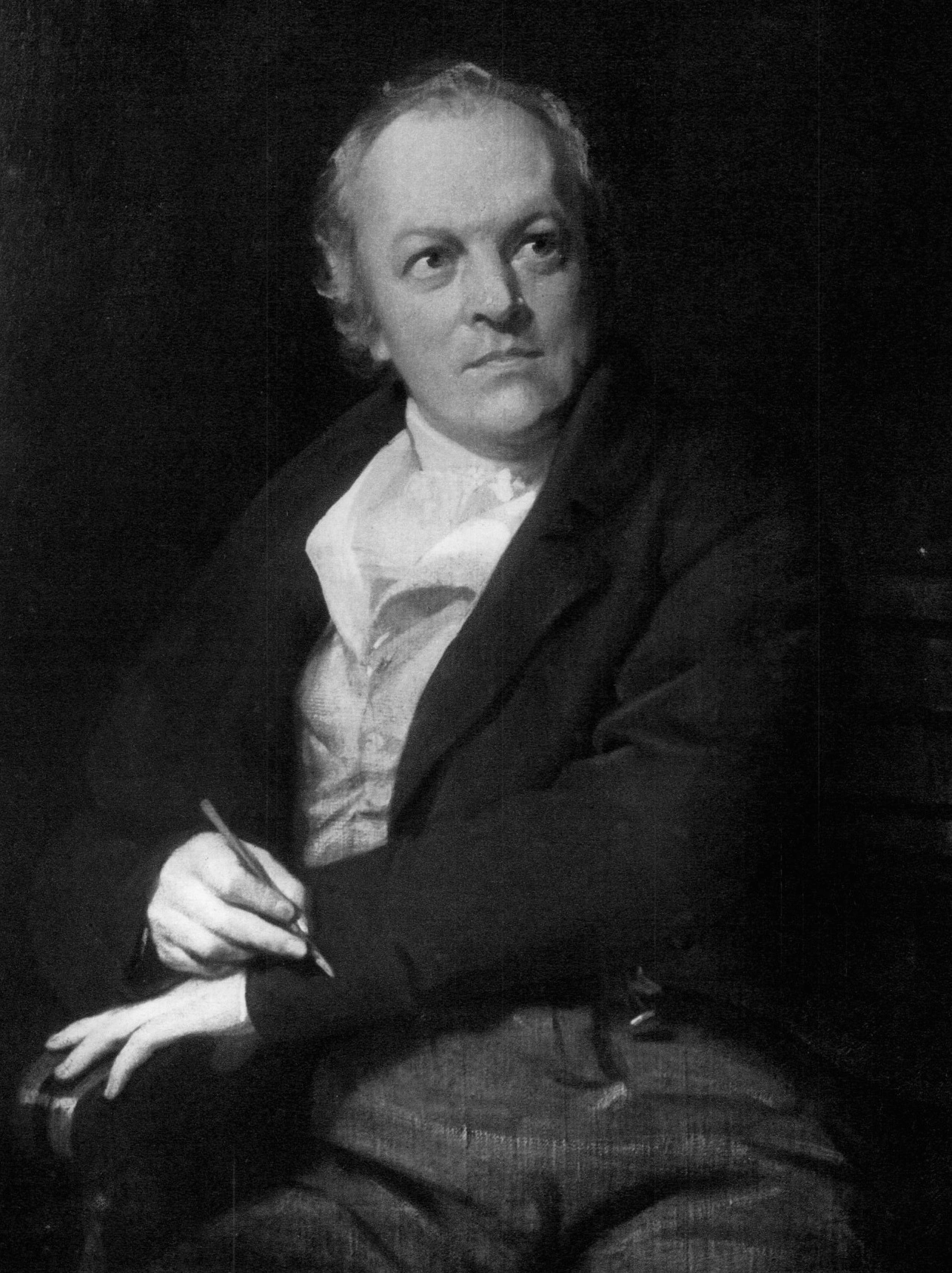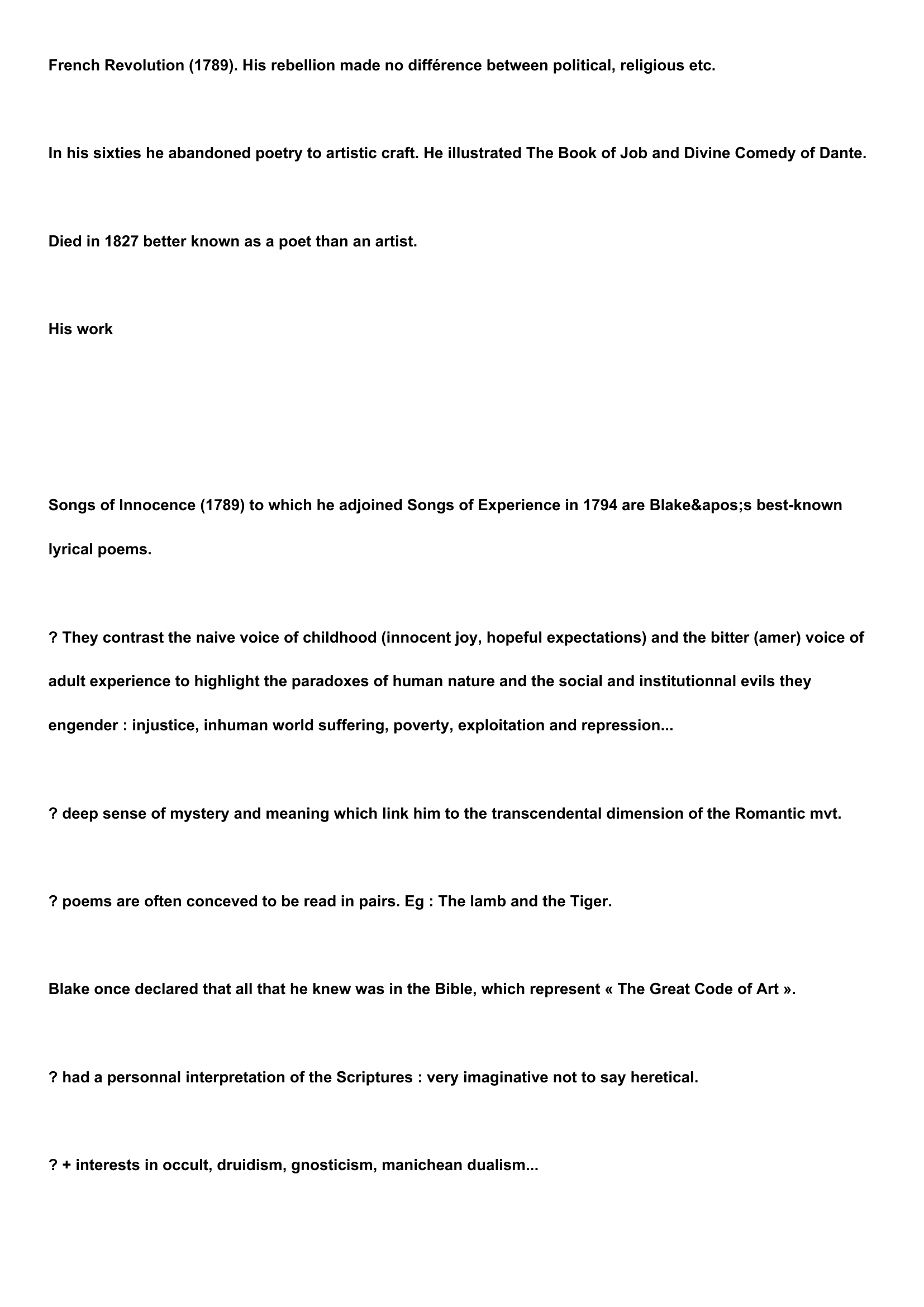William Blake
Publié le 16/09/2012
Extrait du document


«
French Revolution (1789).
His rebellion made no différence between political, religious etc.
In his sixties he abandoned poetry to artistic craft.
He illustrated The Book of Job and Divine Comedy of Dante.
Died in 1827 better known as a poet than an artist.
His work
Songs of Innocence (1789) to which he adjoined Songs of Experience in 1794 are Blake's best-known
lyrical poems.
? They contrast the naive voice of childhood (innocent joy, hopeful expectations) and the bitter (amer) voice of
adult experience to highlight the paradoxes of human nature and the social and institutionnal evils they
engender : injustice, inhuman world suffering, poverty, exploitation and repression...
? deep sense of mystery and meaning which link him to the transcendental dimension of the Romantic mvt.
? poems are often conceved to be read in pairs.
Eg : The lamb and the Tiger.
Blake once declared that all that he knew was in the Bible, which represent « The Great Code of Art ».
? had a personnal interpretation of the Scriptures : very imaginative not to say heretical.
? + interests in occult, druidism, gnosticism, manichean dualism....
»
↓↓↓ APERÇU DU DOCUMENT ↓↓↓
Liens utiles
- LIVRES PROPHÉTIQUES (Les) William Blake
- LIVRES PROPHÉTIQUES (Les) William Blake
- MILTON de William Blake - résumé, analyse
- MARIAGE DU CIEL ET DE L’ENFER (Le) de William Blake
- William Blake: Songs of Innocence (Sprache & Litteratur).

































